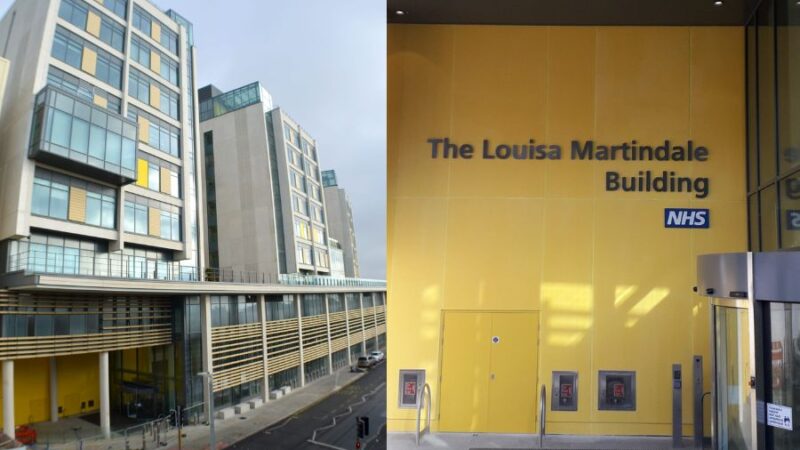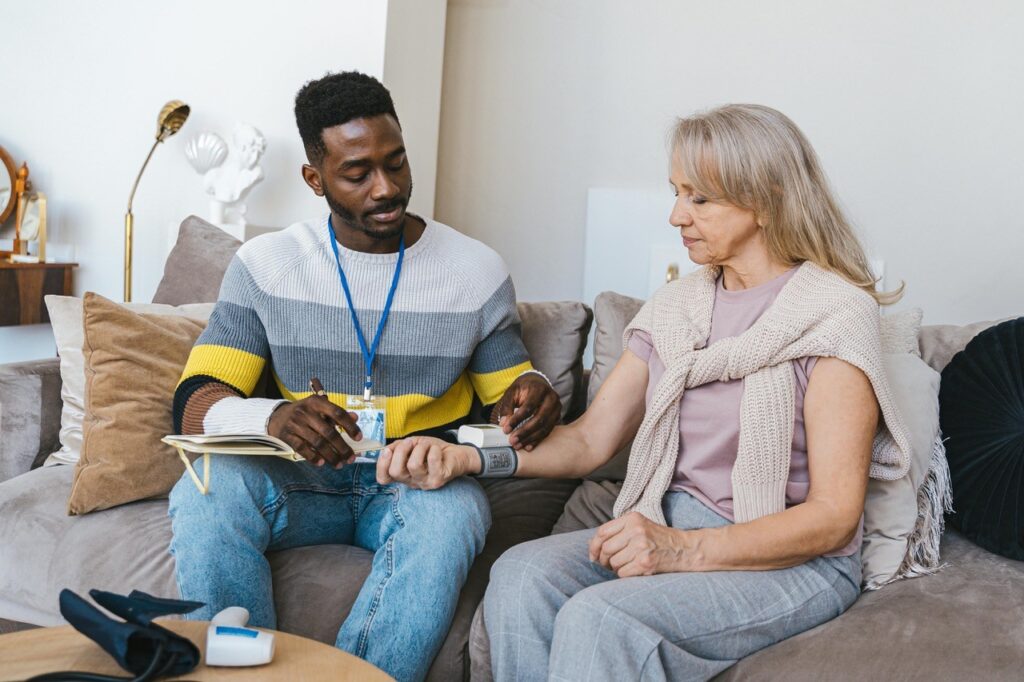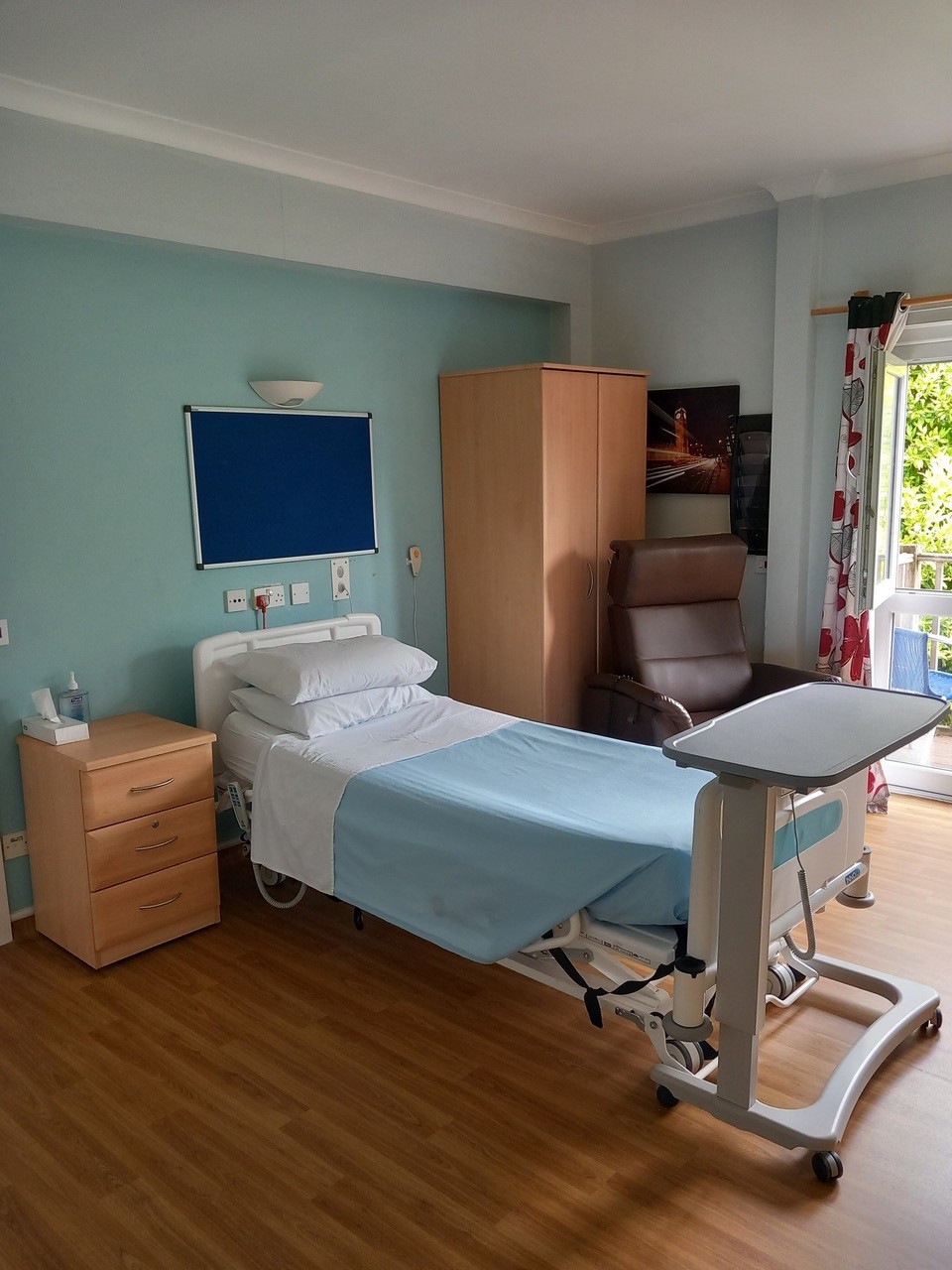
Welcome to the Lawson Unit Newsletter
We are delighted to share that this edition of our newsletter has been created entirely by members of the Lawson Unit Patient Panel. Written by patients, for patients, it reflects the voices, experiences, and insights of our own community. As a department, we’re incredibly proud to see our patients leading the way in shaping this and future editions of our bi-annual newsletter — a true collaboration that celebrates shared learning, creativity, and lived experience.
Being involved in your care

The British HIV Association (BHIVA) standards of care state that people living with HIV should be involved in decisions made about their care. BHIVA call it ‘Person-Centred Care’. Decisions are best made when important information is shared to help you make that decision. If you have ever heard the expression ‘informed decision’, then you get the idea.
It could be argued that people living with HIV are some of the best-informed patients about their condition. We know that living with HIV is a chronic, lifelong condition and the life experience built up over many years is invaluable to both patients, clinicians, and researchers. Where do we as patients get our information from?
Patients living with HIV who were diagnosed before effective treatment will remember publications such as the National AIDS Manual and their leaflets produced as AIDS Map. (The Terrence Higgins Trust are now the custodians of AIDSMAP).
National networks
As people living with HIV, we have the opportunity to talk about our medication and lifestyle with our doctors but also each other. Apart from waiting rooms and support groups, where can we find out information about the latest advances in treatments from other people living with HIV?
The UK-CAB stands for the UK Community Advisory Board. It is a network of treatment advocates. Their website is www.UK-CAB.net
The UK-CAB website is a noticeboard-type service where members can post information about anything to do with living with HIV, but in particular about treatment and research studies. The UK-CAB service is more than just a network. It is a movement driven by empowered patients who wish to advance HIV care and treatment. Joining the UK-CAB is completely free and you do not have to do anything; simply sit back and receive information from fellow members, or you may wish to engage with fellow members about treatments and research.
UKCAB organisers regularly hold workshops and training sessions focusing on the latest developments and age of each treatment and research. These sessions provide opportunities for people living with HIV to learn from healthcare professionals as well as learn about developments in treatments and new clinical trials, not just in the UK but also other countries around the world.
You only need a valid email account/address to join UK-CAB. When you join UK-CAB, your membership will provide access to a range of resources, including regular newsletters, updates on HIV research and treatment developments. You may also receive invitations to workshops, conferences, and training events and also have the opportunity to participate in advocacy campaigns and policy discussions. As a member of UKCAB, you get notifications in your email; you may choose to have a daily digest, weekly digest, or receive emails on topics of your choice.
Local networks
There are other opportunities to get involved in Patient advocacy and activism more locally in Brighton & Hove.
The Sussex Beacon has a service users forum that meets every few months. If you are a Service User of The Sussex Beacon, you are entitled to attend these meetings, some of which are open and some of which are closed. The Sussex Beacon values the Service User forum as an important way of exchanging feedback and making sure that its policies reflect the realities of day-to-day living with HIV.
Peer Action is a peer-led service supported by The Sussex Beacon. The group has run health and wellbeing sessions at The Terrence Higgins Trust in Brighton and at The Beacon, as well as organised social activities and day trips for people affected by HIV. Currently there is a swimming group that meets at The King Alfred Centre on Tuesdays and Thursdays. For further information on Peer Action, please contact the Sussex Beacon.
Another great way of keeping informed locally is the Lawson Unit patient panel.
The Lawson Unit patient panel meets on Wednesday evenings approximately every three months. The patient panel provides content for the Lawson Unit newsletter, which you are reading right now. The format of patient panel meetings usually includes a guest speaker; topics are often chosen by panel members themselves. Currently, the meetings are facilitated by a member of staff; however, it is hoped that the patient panel will soon be completely run by patients themselves.
Updates from The Sussex Beacon

The Sussex Beacon adds LGBTQI+ to the patient mix.
In a landmark development, The Sussex Beacon has announced it is to become the UK’s only dedicated hospice for LGBTQ+ people, uniquely combining inclusive care with expertise in specialist HIV care. The local charity is refreshing its approach to palliative and end-of-life care services, expanding its offer to include the LGBTQ+ community, regardless of HIV status. This will be done over a phased period, following significant further planning and consultation.
“We are enormously excited by what will become a new chapter for The Sussex Beacon,” said CEO Rachel Brett. “The LGBTQ+ community built The Beacon, and now we will be giving it back, stronger and more inclusive than ever. It was originally founded to offer care in a safe, accepting space for people dying with AIDS-related illnesses.
“Thanks to advances in HIV treatment, our focus has moved to ensure that people across local communities are getting the help and support they need. Further to this, we are delighted that we can use the fantastic facility that we have to refresh our offer of hospice care for the LGBTQ+ community.”
Decades of experience supporting people with HIV have given The Sussex Beacon deep insight into the ongoing impact of stigma and health inequalities. National research, including Hospice UK’s report “I Just Want To Be Me”, which examines access to care for trans and gender-diverse people and insights from LGBTQ+ organisations, reveals that many LGBTQ+ individuals find healthcare unwelcoming, often encountering insensitivity or a lack of understanding. “The Sussex Beacon is uniquely placed to change that,” Ms Brett added. “We will not only provide inclusive palliative care, but also act as a national resource, helping other hospices improve their services for LGBTQ+ patients.”
Speaking on the HIV Hour radio show on RadioReverb, Ms Brett assured listeners that people living with HIV will still be at the core of The Sussex Beacon’s activities.
The workforce that formed the medical services up until February will be updated and, whilst training and recruitment is taking place, there will be substantial improvement to the building at Bevendean Road. Ms Brett said, “The Beacon, as beautiful as it is up here on the hill, has not had an awful lot of investment over the past 30 years, and there are some things that need replacing; quite big things such as windows and doors, and other significant projects such as replacing balconies and bathrooms. We want to invite people back into a space that is fresh, that is up to a standard of care that we want and that we want to welcome people back to. As part of our fundraising to improve the fabric of the building we will be sending a shout-out to the community to help us with that.”
This new provision, to include LGBTQI+ palliative and end-of-life care approaches, will be delivered with the support of the NHS. To secure long-term sustainability, The Sussex Beacon will also rely on charitable funding. “It’s fair to say we need our community behind us now more than ever,” said Ms Brett. “The next few years will be challenging as we make this transition but, with collective support, we’ll create something truly transformative.”
Dr Amy Dissanayake, Deputy Chief Medical Officer at NHS Sussex, said, “We are delighted to be working with The Sussex Beacon as they make this step to enhance the high-quality service they can provide the local community.
“In addition to the hospice care, their experience in providing specialist community care for people living with HIV is invaluable and fully supports our ambition to bring care out of hospitals where possible, and into communities, either in people’s homes directly or in their local neighbourhood at community hubs. We look forward to continuing to work with the team at The Sussex Beacon to make this a reality for our population.” For more information please visit www.sussexbeacon.org.uk
Exciting developments in the HIV world

The landscape of HIV medicine is ever evolving, extending far beyond viral suppression into areas of innovation, personal choice, and healthcare system readiness.
Recent exciting national updates include the licensing of long-acting injectable medication to prevent HIV (called Pre-Exposure Prophylaxis – PrEP). However, as with many new treatments, funding and implementation of these innovations remain challenging in many areas.
More information available here: https://www.ema.europa.eu/en/news/new-injection-easier-prevention-hiv-infection-eu-worldwide
In the research pipeline, we see a wide array of developments and innovative treatment ranging from six-monthly injectables, antibody infusions, long-acting oral tablets, implants, and even patches. However, the journey from concept to clinic can take 10–15 years, and many of these innovations never make it to market. While these developments are exciting and full of potential, there are still many unknowns about efficacy, application, accessibility, and cost. What is clear, however, is that HIV care as we know it is changing.
Take for example the rollout of long-acting injectable antiretrovirals (Cabotegravir and Rilpivirine): For some, this has been life-changing—freeing them from daily pills. For others, the idea of regular injections, clinic visits every two months, and potential injection site pain feels like a step backward, especially with the perfectly good pills at home!
What’s clear is there is no “one-size-fits-all”, but what is exciting is that we now have more choices than ever before. Individual preference, lifestyle, and comfort must remain at the centre of care—and hooray for that.
What to Do If Someone Is Experiencing a Mental Health Crisis in East Sussex?

People living with HIV can experience episodes of poor mental health. This could be for many reasons. Stigma, discrimination and inequalities may play a part. It is important to talk to a healthcare professional if you are worried about your mental health. You may also be worried about someone else’s mental health or well-being.
Immediate Danger?
Call Emergency Services
If someone is at imminent risk of harm (to themselves or others) – call 999 or go straight to the nearest A&E
Urgent Mental Health Help?
Call NHS 111 and select the mental health option (the Sussex Mental Healthline) — available 24/7 and connects callers to support and next steps.
Sussex Mental Healthline
0300 5000 101 — Supports people in crisis, carers, and professionals across Sussex. Open evenings through to next morning in Brighton & East Sussex, and 24/7 in West Sussex.
Mental Health Rapid Response Service (MHRRS) – Brighton & Hove
0300 304 0078 — Supports adults in immediate crisis, including those at high risk of self-harm or unsafe behaviour. Available 8 am–10 pm weekdays and 10 am–10 pm on weekends and bank holidays.
Text “SUSSEX” to 85258
A 24/7, free, confidential text-based service; connects you with trained mental health professionals.
Samaritans 24/7 Helpline
116 123, available any time for emotional support.
Stay Alive App
A suicide prevention app offering tools, support materials, and safety planning.
We have also compiled a list of mental health support services and is available to via online: https://brightonsexualhealth.com/hiv-care/support/mental-health/
Making a Complaint or Raising Concerns

We want all our patients to feel safe, respected, and well cared for in The Lawson Unit. If you are unhappy with any part of your care, or if you would like to raise a concern, please know that we take this seriously and welcome your feedback.
Speak to us first
Often, concerns can be resolved quickly by talking to a member of staff involved in your care. Please let us know if something is worrying you—we will do our best to put it right straight away.
Patient Advice and Liaison Service (PALS)
If you would prefer to speak to someone who is not directly involved in your care, you can contact the Patient Advice and Liaison Service (PALS).
https://www.uhsussex.nhs.uk/patients-and-visitors/support/pals/
The PALS team can help patients by listening and supporting, in addition, PALS can help with:
- Providing confidential information & advice
- Helping resolve smaller issues and problems with current care that can be addressed immediately
- Assisting patients and/or relatives who need time to discuss their concerns
- Acting as a first point of call for telephone and face to face enquiries
- Helping arrange interpreter, translation and British Sign Language services
- Advising what services are available and how to make a complaint
- Passing on compliments to staff.
You can contact PALS in person, by phone, or by email.
Princess Royal Hospital — 01444 448678 or email [email protected]
Royal Sussex County Hospital — on extn 64511 or 64973 or email [email protected]
St Richard’s Hospital — 01243 831822 or email [email protected]
Worthing and Southlands hospitals — 01903 285032 or email [email protected]
Making a formal complaint
If your concern cannot be resolved informally, you have the right to make a formal complaint. This can be done in writing, by email, or by speaking with PALS who can guide you through the process.
Your care will not be affected
Raising a concern or making a complaint will not affect your care or treatment. We are committed to listening, learning, and improving our services.
Do you, or someone you know, need support with substance misuse, drugs or alcohol?

For some people their drug or alcohol use may become manageable. If things get difficult or you would like further information or support, please talk to a member of staff when you attend the clinic. We will listen without judgement and can give you information on how to access support services. We can also help make a referral on your behalf, if you prefer.
We complied a list of service and will be kept updated via this webpage:
https://brightonsexualhealth.com/advice/drugs-and-alcohol/
